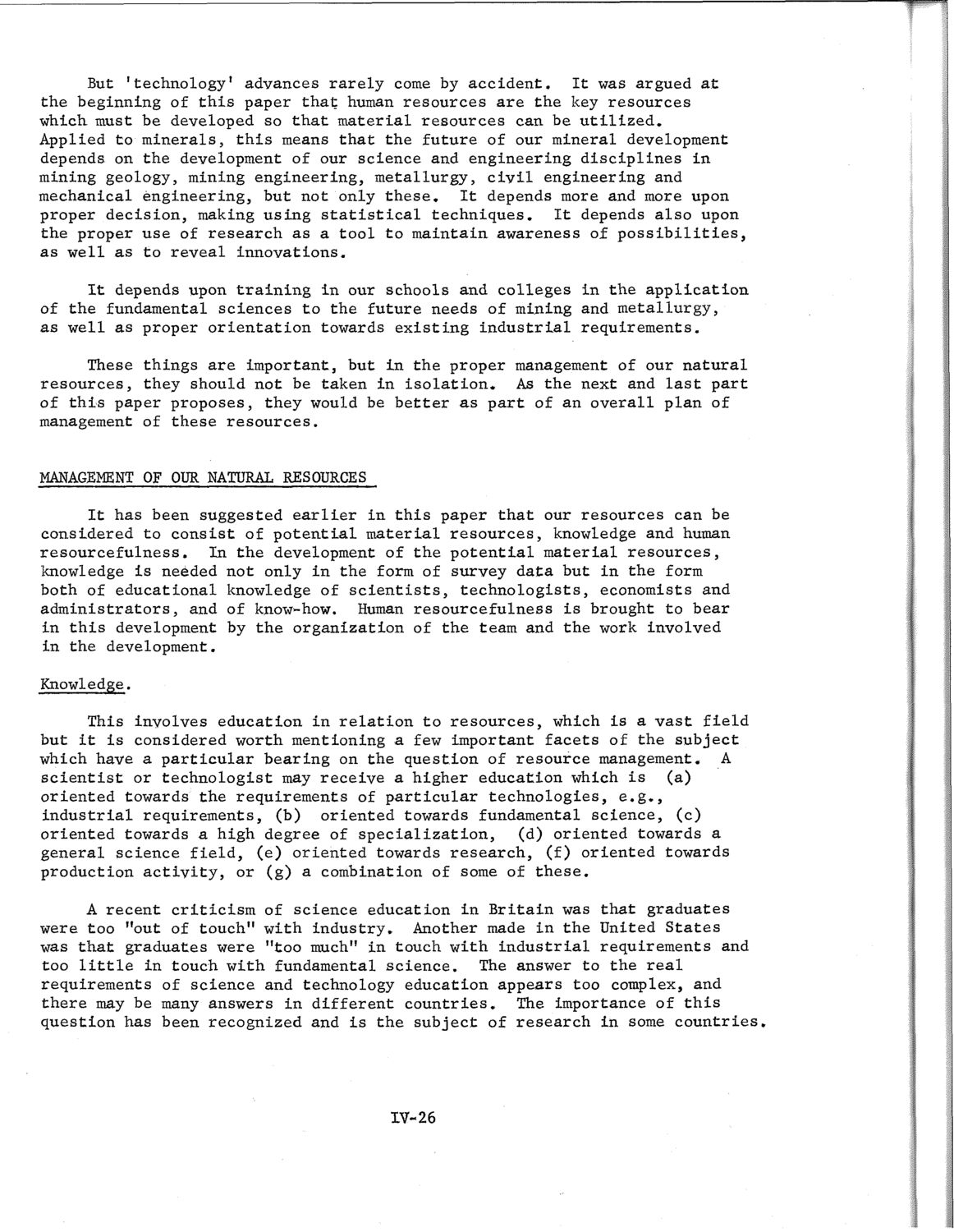| |
| |
Caption: SWE - Proceedings of the First International Conference of Women Engineers and Scientists
This is a reduced-resolution page image for fast online browsing.

EXTRACTED TEXT FROM PAGE:
But 'technology' advances rarely come by accident. It was argued at the beginning of this paper that human resources are the key resources which must be developed so that material resources can be utilized. Applied to minerals, this means that the future of our mineral development depends on the development of our science and engineering disciplines in mining geology, mining engineering, metallurgy, civil engineering and mechanical engineering, but not only these. It depends more and more upon proper decision, making using statistical techniques. It depends also upon the proper use of research as a tool to maintain awareness of possibilities, as well as to reveal innovations. It depends upon training in our schools and colleges in the application of the fundamental sciences to the future needs of mining and metallurgy, as well as proper orientation towards existing industrial requirements. These things are important, but in the proper management of our natural resources, they should not be taken in isolation. As the next and last part of this paper proposes, they would be better as part of an overall plan of management of these resources. MANAGEMENT OF OUR NATURAL RESOURCES It has been suggested earlier in this paper that our resources can be considered to consist of potential material resources, knowledge and human resourcefulness. In the development of the potential material resources, knowledge is needed not only in the form of survey data but in the form both of educational knowledge of scientists, technologists, economists and administrators, and of know-how. Human resourcefulness is brought to bear in this development by the organization of the team and the work involved in the development. Knowledge. This involves education in relation to resources, which is a vast field but it is considered worth mentioning a few important facets of the subject which have a particular bearing on the question of resource management. A scientist or technologist may receive a higher education which is (a) oriented towards the requirements of particular technologies, e.g., industrial requirements, (b) oriented towards fundamental science, (c) oriented towards a high degree of specialization, (d) oriented towards a general science field, (e) oriented towards research, (f) oriented towards production activity, or (g) a combination of some of these. A recent criticism of science education in Britain was that graduates were too "out of touch" with industry. Another made in the United States was that graduates were "too much" in touch with industrial requirements and too little in touch with fundamental science. The answer to the real requirements of science and technology education appears too complex, and there may be many answers in different countries. The importance of this question has been recognized and is the subject of research in some countries. IV-26
| |